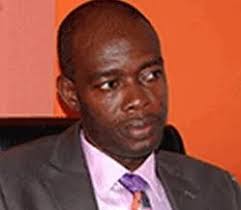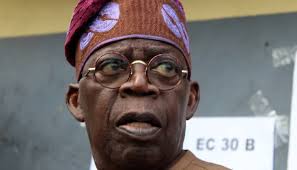President Bola Tinubu’s congratulatory message to six distinguished Diaspora Nigerians named among the 400 Presidential Early Career Award recipients for Scientists and Engineers in the United States is a testament to the indomitable spirit and ingenuity of Nigerians on the global stage. These honorees – Azeez Butali, Ijeoma Opara, Oluwatomi Akindele, Eno Ebong, Oluwasanmi Koyejo, and Abidemi Ajiboye – have scaled great heights in their respective disciplines, earning recognition in science, technology, and engineering.
Their achievements underline the immense potential of Nigerian talent and its capacity to thrive under enabling conditions. However, this celebration of Nigerian excellence abroad also highlights a deeply unsettling reality. These remarkable scientists and engineers are excelling in another clime, not because they lack love for their homeland, but because Nigeria has yet to create the environment they need to thrive.
The accolades they now receive in the United States could have been contributions to Nigeria’s development, were it not for the systemic challenges that stifle innovation and research at home. The Nigerian paradox – talent in abundance, opportunity in scarcity – speaks to the title of this piece – the Moon’s loss as the Star’s gain, which derives from EzikeÍba Igbo proverbial lore.
The EzikeÍba proverb, Ìnwa jå nryi, kpakpando wor’ ryie (When the moon rejects food, the star would gladly grab it and gobble down with ease), captures the ongoing exodus of Nigeria’s brightest minds to other continents. This proverbial wisdom underscores a painful truth. Nigeria’s systemic failures have inadvertently become a source of wealth and innovation for countries that recognize and nurture the talents Nigeria fails to harness.
This phenomenon, widely referred to as the japa syndrome, speaks to the wave of emigration driven by frustrations with Nigeria’s failing systems. The global recognition of ‘japa,’ a Yoruba term, which has now become part of the Oxford English Dictionary (OED) lexical entries, not only underscores its linguistic traction but also encapsulates the reality of Nigeria’s situation. Language, a living organism of culture, evolves in response to the shifting realities of society. This linguistic evolution mirrors societal change, telling the story of a restless generation determined to rewrite their destinies.
The inclusion of japa in the global lexicon signifies the growing ubiquity of the phenomenon it describes. It is not just a word but a narrative of desperation, resilience, and survival – a tale of individuals leaving behind familiar landscapes for uncertain futures in search of stability, dignity, and opportunity. Originally meaning ‘to flee’ or ‘escape,’ japa has evolved into a metaphor for the mass exodus of Nigerians seeking better opportunities abroad. Its entry into the OED is both a linguistic milestone and a sobering reflection of the social and economic challenges that have driven the nation’s brightest minds and skilled workers to foreign lands.
The japa phenomenon is both a symptom of systemic dysfunction and a cause of further decline. With fewer professionals to address critical challenges in health, education, and technology, Nigeria faces a vicious cycle of underdevelopment. The loss of human capital is not just a numbers game; it is a story of stifled dreams and wasted potential – of what could have been if only the system had worked.
President Bola Tinubu’s congratulatory message to six distinguished Diaspora Nigerians named among the 400 Presidential Early Career Award recipients for Scientists and Engineers in the United States is a testament to the indomitable spirit and ingenuity of Nigerians on the global stage. These honorees – Azeez Butali, Ijeoma Opara, Oluwatomi Akindele, Eno Ebong, Oluwasanmi Koyejo, and Abidemi Ajiboye – have scaled great heights in their respective disciplines, earning recognition in science, technology, and engineering.
Their achievements underline the immense potential of Nigerian talent and its capacity to thrive under enabling conditions. However, this celebration of Nigerian excellence abroad also highlights a deeply unsettling reality. These remarkable scientists and engineers are excelling in another clime, not because they lack love for their homeland, but because Nigeria has yet to create the environment they need to thrive.
The accolades they now receive in the United States could have been contributions to Nigeria’s development, were it not for the systemic challenges that stifle innovation and research at home. The Nigerian paradox – talent in abundance, opportunity in scarcity – speaks to the title of this piece – the Moon’s loss as the Star’s gain, which derives from EzikeÍba Igbo proverbial lore.
The EzikeÍba proverb, Ìnwa jå nryi, kpakpando wor’ ryie (When the moon rejects food, the star would gladly grab it and gobble down with ease), captures the ongoing exodus of Nigeria’s brightest minds to other continents. This proverbial wisdom underscores a painful truth. Nigeria’s systemic failures have inadvertently become a source of wealth and innovation for countries that recognize and nurture the talents Nigeria fails to harness.
This phenomenon, widely referred to as the japa syndrome, speaks to the wave of emigration driven by frustrations with Nigeria’s failing systems. The global recognition of ‘japa,’ a Yoruba term, which has now become part of the Oxford English Dictionary (OED) lexical entries, not only underscores its linguistic traction but also encapsulates the reality of Nigeria’s situation. Language, a living organism of culture, evolves in response to the shifting realities of society. This linguistic evolution mirrors societal change, telling the story of a restless generation determined to rewrite their destinies.
The inclusion of japa in the global lexicon signifies the growing ubiquity of the phenomenon it describes. It is not just a word but a narrative of desperation, resilience, and survival – a tale of individuals leaving behind familiar landscapes for uncertain futures in search of stability, dignity, and opportunity. Originally meaning ‘to flee’ or ‘escape,’ japa has evolved into a metaphor for the mass exodus of Nigerians seeking better opportunities abroad. Its entry into the OED is both a linguistic milestone and a sobering reflection of the social and economic challenges that have driven the nation’s brightest minds and skilled workers to foreign lands.
The japa phenomenon is both a symptom of systemic dysfunction and a cause of further decline. With fewer professionals to address critical challenges in health, education, and technology, Nigeria faces a vicious cycle of underdevelopment. The loss of human capital is not just a numbers game; it is a story of stifled dreams and wasted potential – of what could have been if only the system had worked.
From scientists and engineers to doctors, academics, and tech experts, a significant portion of Nigeria’s human capital has been forced to seek opportunities in climes where merit is rewarded, innovation is supported, and talents are cherished. Like the moon that turns away from food, Nigeria’s inability to provide an enabling environment for its best and brightest has paved the way for stars – countries such as the United States, Canada, and the United Kingdom – to eagerly accept and benefit from what should have been Nigeria’s greatest resource: its people.
This brings us to the Moon’s avoidable loss and the Star’s inevitable gains. Nigeria’s loss of talent is nothing short of tragic. Despite being home to some of the most brilliant minds on the planet, the country has consistently failed to create a conducive environment for growth and development. Critical sectors such as health, education, technology, and engineering remain grossly underfunded, while political instability, corruption, and insecurity compound the problem. The result is a brain drain on an unprecedented scale. Available statistics indicate that this figure is steadily increasing.
These are individuals who could have contributed immensely to national development, driving innovation and solving pressing challenges. Instead, they are making headlines in foreign lands, achieving feats that underscore Nigeria’s failure to harness its potential. For countries that recognize the value of talent, Nigeria’s brain drain is a golden opportunity. The United States, for instance, not only accepts these talents but actively creates pathways for their integration into its systems. The recognition of six Nigerian scientists and engineers among the 400 Presidential Early Career Award recipients for Scientists and Engineers in the United States is a prime example.
These individuals, though of Nigerian origin, are now contributing to advancements in science, technology, and engineering under the auspices of the United States government. Similarly, Europe, Canada, and even emerging economies in Asia have become fertile grounds for Nigerian talent. These countries invest in research, innovation, and human capital development – areas where Nigeria continues to falter. As a result, they reap the rewards of groundbreaking innovations, robust health systems, and thriving academic institutions powered in part by Nigerian professionals.
The path for reclaiming the Moon’s meal is not foreclosed yet. The proverbial Moon can still reclaim its food if it recognizes the value of what it has rejected. Nigeria must confront the systemic failures driving its citizens away. This requires a holistic approach, starting with significant investments in critical sectors such as education, healthcare, and technology. Institutions must be strengthened, corruption curtailed, and policies implemented to create an environment where talents can thrive.
Furthermore, deliberate efforts must be made to engage the Diaspora. Knowledge transfer programmes, dual appointments, and incentives for Nigerians abroad to return home can bridge the gap between local shortcomings and global excellence. If Nigeria takes bold steps to restore confidence in its systems, it can not only stem the tide of brain drain but also attract its expatriates back home to contribute to national development.
The World Bank had in its 2023 made recommendations on how to leverage the japa syndrome as a development strategy. The World Development Report 2023: Migrants, Refugees, and Societies offers a thought-provoking recommendation. Nigeria and other countries of origin should embrace labour migration as an explicit part of their development strategy. While the report highlights practical measures to harness the economic benefits of migration such as lowering remittance costs, facilitating knowledge transfers, building globally in-demand skills, and supporting returnees, it raises an uncomfortable question. Should Nigeria encourage its citizens to seek greener pastures abroad rather than addressing the systemic failures driving this exodus? Labour migration has long been a double-edged sword for developing countries.
On one hand, remittances from the Diaspora have become a vital lifeline, contributing significantly to foreign exchange reserves and poverty alleviation. On the other hand, the adverse effects of brain drain cannot be overstated. The mass exodus of skilled professionals – doctors, nurses, engineers, academics – has created a vacuum that undermines national development. For every individual who succeeds abroad, there is often a gaping hole left behind in the system they exited.
The World Bank’s recommendation to leverage migration for development is pragmatic but incomplete. While encouraging the japa phenomenon as a development strategy may boost immediate economic benefits, it risks institutionalizing systemic failures that compel migration in the first place. Nigeria cannot afford to treat migration as a substitute for fixing its internal problems; rather, it must strike a balance between leveraging the Diaspora’s potential and building a nation capable of retaining its best and brightest.
While the World Bank’s report advocates embracing migration, Nigeria’s long-term goal should be to create an environment where migration becomes a choice rather than a necessity. Countries like India and China have demonstrated how strategic engagement with their Diaspora can fuel national development, but they have done so alongside robust domestic reforms. Nigeria must learn from these examples, using the benefits of migration to support – not replace – efforts to address its systemic failures.
While one joins President Bola Tinubu in congratulating Nigeria’s shining stars – those exceptional minds now excelling in their adopted lands of green pastures – this development calls for deeper introspection. It is a moment to pause and question why the brilliance that illuminates foreign climes continues to dim within Nigeria’s borders. The celebration of these successes, though deserved, must serve as a clarion call to recalibrate a system that has consistently driven its best and brightest into the arms of more accommodating nations. This moment of celebration should be a turning point for Nigeria.
The success of its Diaspora is a testament to the latent potential within the country, but it also underscores the urgency of addressing the factors driving the japa syndrome. President Tinubu’s Renewed Hope Agenda provides an opportunity to rethink and rebuild. The President’s acknowledgment of these distinguished Nigerians is a step in the right direction, but words must be backed by action.
If the government is serious about reversing brain drain, it must prioritize creating an environment where talent is valued, nurtured, and rewarded. Intensify deliberate effort to invest in education and research. Policies that incentivize innovation, such as grants, fellowships, and tax breaks for startups, can help create an ecosystem where talent can thrive. Address the broader socio-political issues plaguing the country and actively engage the diaspora community.
As the proverbial Star smacks its tongue with relish, feasting on the banquet rejected by the Moon, Nigeria must take lessons from its loss. The achievements of Nigerians abroad should inspire a collective resolve to fix the systemic failures at home. It is only this way that Nigeria can reclaim its brightest stars and ensure that the banquet of innovation, growth, and progress is served within its borders
The EzikeÍba proverb is both a warning and a call to action. When the moon rejects food, the star does not hesitate to relish it. Nigeria’s ongoing brain drain underscores the fact that talent cannot thrive in a vacuum; it gravitates toward nurturing environments. While it is heartening to see Nigerians excel abroad, it is equally disheartening to consider what could have been if these talents were thriving within their homeland. If Nigeria hopes to reverse this trend, it must act swiftly and decisively to address the root causes of the japa syndrome.
This is no rocket science for President Tinubu working assiduously to actualize a one trillion-dollar economy by 2026. Therefore, his administration should brace up to the challenges of ensuring that the next generation of innovators and professionals finds no reason to flee but every reason to stay, thrive, and build. Until then, the moon will continue to scoff at chow, and the star will stay the course of ‘gormandizing’ the sumptuous dish – leaving the finicky eater to grapple with the consequences of its choosy disposition.







